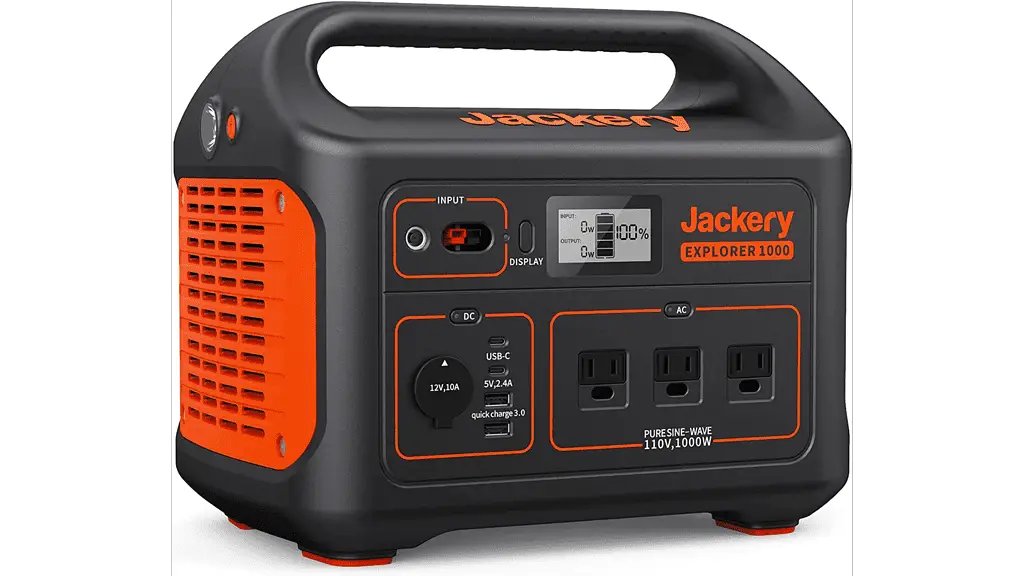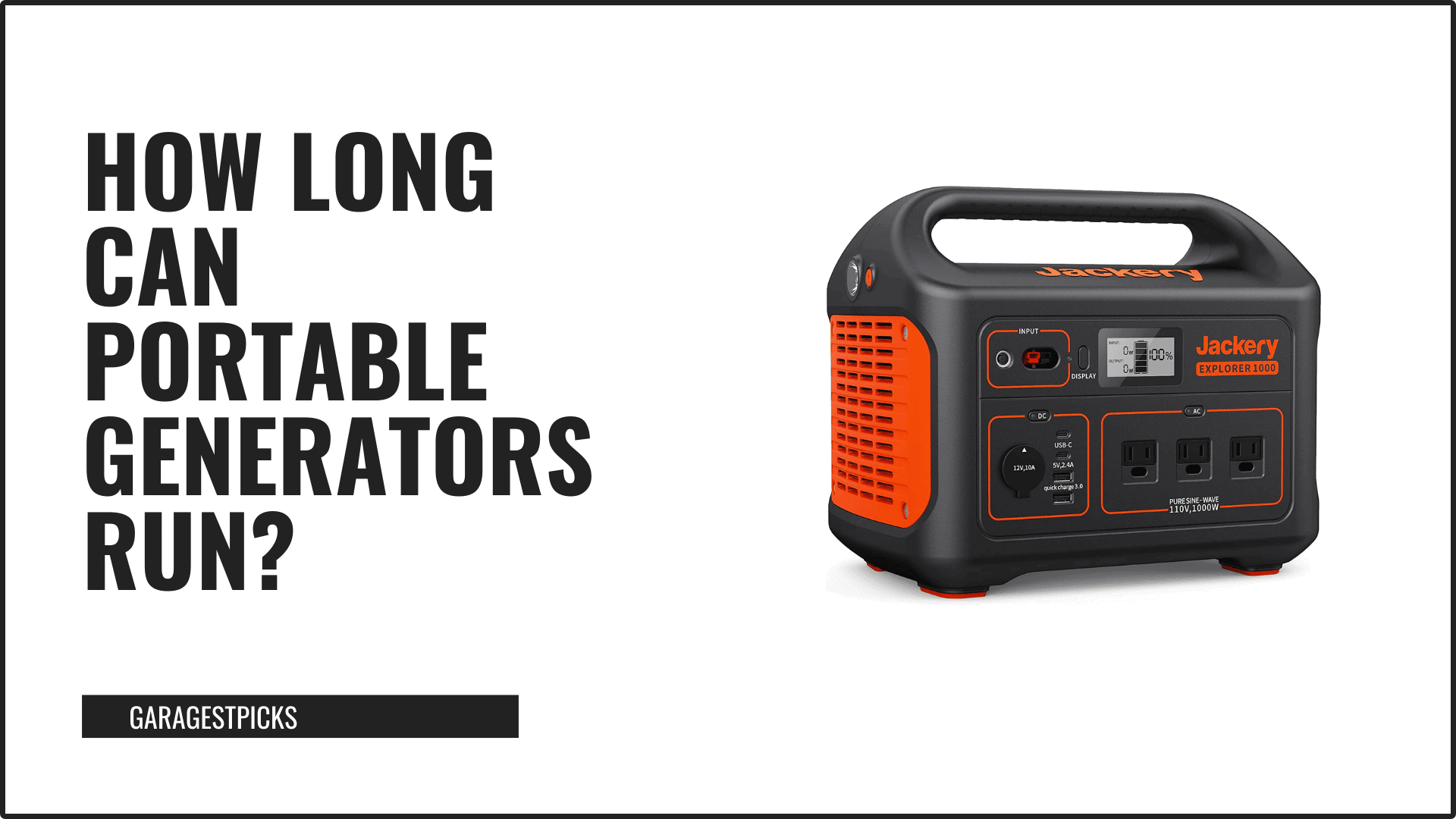If you are planning to buy a portable generator, you must be curious to know how long can portable generators run. This article answers that question and explains what impacts the portable generator’s runtime.
Portable generators are designed to run for 6 to 12 hours depending on their fuel type, tank size, cooling, and wattage. Generator run time heavily depends on the type of fuel used, the electrical demand, ambient temperature, and the elevation of your location.
Here are some considerations for determining how long a portable generator will run for your specific needs and requirements.
After reading the article, you’ll be well-equipped in making a decision about what portable generator to get.
You can also check out my article on whether or not portable generators are safe for electronics.

Fuel Tank Size of your Generator
When shopping for a portable generator, always consider the fuel tank size. The smaller tank means less fuel, but it is more portable overall. And, you can always top it up if needed.
A large fuel tank will make your generator less portable but allows you to run it for longer without refueling.
A bigger fuel tank also means that the portable generator is designed by the manufacturer to run longer. It would also have better cooling, a more reliable engine, and more watts.
Whether you’re preparing for a party or merely want to keep your portable generator powered for a long time, make sure it has sufficient fuel capacity for your needs.
Choosing the right fuel tank size upfront will increase the overall performance of your portable generator and save you money in the long run.
Type of fuel you are using
The most common type of fuel for portable generators that run continuously are gasoline and diesel. Both fuel types are readily available.
A less common fuel choice for people to run portable generators for longer is liquid propane or natural gas. Although this fuel type burns cleaner, it has less energy density than gasoline or diesel, which does not let the generator run for longer.
Larger liquid propane tanks are available and can be a viable option for camping and off-grid living, where you are also using liquid propane to heat water and cook food.
Buying a generator that can run on multiple fuel types is an option these days but I suggest sticking with a specific fuel type that matches your needs. Portable generators with bi-fuel kits can cause unexpected problems and can be cumbersome for emergency use.
Electrical demand from your generator
The North American region is one of the largest consumer markets for portable generators, owing to the high electricity costs and frequent power outages. Portable generators work like a car, if you want to go fast you burn more fuel and get less mileage.
Similarly, putting more electrical load on your generator would cause it to burn more fuel and give less runtime.
The global market for portable generators is largely driven by the residential sector. A smaller portable generator designed for camping is not going to run for long if you plan to use it to power your house during blackouts. To combat this, you should buy the right portable generator for your needs, to begin with.
Cooling and Ambient Temperatures
Portable generators are gasoline engines (similar to car engines) spinning electrical generators and producing electricity. These engines require constant cooling to run constantly, and a lack of cooling would damage them.
Most portable generators are passively cooled or have a small fan that blows ambient air over the generator to cool it down. Running portable generators under shade and in cooler climates would make them run longer than running in warm climates or direct sunlight.
Most generators have an automatic thermal shutoff, which helps reduce the risk of damage or fire in case of overheating. But it is better not to risk anything and run your generator at least under shade and give it a few hours to cool down during longer run intervals to ensure better reliability.
Elevation of your location
The runtime of portable generators can vary vastly based on altitude. However, generators rarely include altitude-related specs in the product sheet, but they may appear in the user manual. Elevation-related terms include max safe altitude, re-jetting, and altitude kits. Portable generators will lose 3% of their horsepower every 1000 ft above sea level because the air is less oxygenated at higher altitude levels.
To avoid losing power from portable generators, you should check the maximum safe altitude for your location before running your generator. Additionally, if you live at a high altitude, you should use a generator with the correct fuel jets designed for higher elevations. It will ensure that your portable generator works efficiently and safely.


